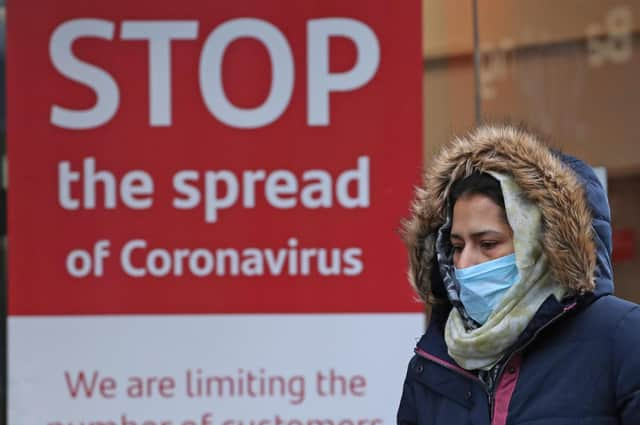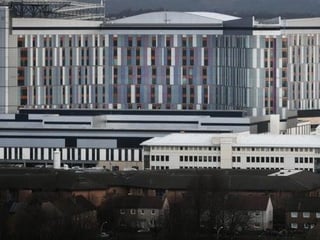Health chief at epicentre of pandemic warns Covid-19 will 'get worse before it gets better'


NHS Dumfries and Galloway chief executive Jeff Ace told the BBC the situation was “worrying” for the region, which has seen the second highest case rate of any council area in Scotland.
Fresh data released on Wednesday by the Scottish Government put the seven-day case rate at 538.1 per 100,000 people, a small rise on similar figures on Tuesday, following their daily update.
Advertisement
Hide AdAdvertisement
Hide AdInverclyde in the west of Scotland is the only area with a worse case rate with 583.5 cases per 100,000 people.
The Borders sit third with 439.8 cases per 100,000 people, with Covid-19 hospitalisations doubling in a week and an additional 508 cases since December 30.
The health boss warned the public the Christmas relaxation – despite the tightening of restrictions to allow just one other household to meet on Christmas Day – would mean the number of infections were likely to continue to rise.
This, in turn, would lead to hospitalisations and intensive care, adding further pressure onto an already stretched NHS.
"We know the trajectory of cases means things are almost certain to get worse before they get better," said Mr Ace.
He added: "The situation could grow considerably worse, given that these current figures do not account for the further rate of increase we may see resulting from increased social interaction on Christmas Day."
Before Christmas, Dumfries and Galloway was hit with an outbreak of Covid-19 centred around a care home in Stranraer and, along with the Borders, saw level one restrictions prior to the Boxing Day reintroduction of lockdown.
Medical director at NHS Borders, Dr Lynn McCallum, said the increase in cases was “undoubtedly” due to the new strain and said outpatient services had been stopped to cope with demand.
Advertisement
Hide AdAdvertisement
Hide AdShe said: “It is important to remember that people who require hospital care as a result of Covid infection often present approximately two weeks after becoming infected, so we expect the impact of rising case numbers to last for weeks, particularly as we start to see the effects of increased household mixing that took place over the festive period.”
A message from the Editor:
Thank you for reading this article. We're more reliant on your support than ever as the shift in consumer habits brought about by coronavirus impacts our advertisers.
If you haven't already, please consider supporting our trusted, fact-checked journalism by taking out a digital subscription.
Comments
Want to join the conversation? Please or to comment on this article.
